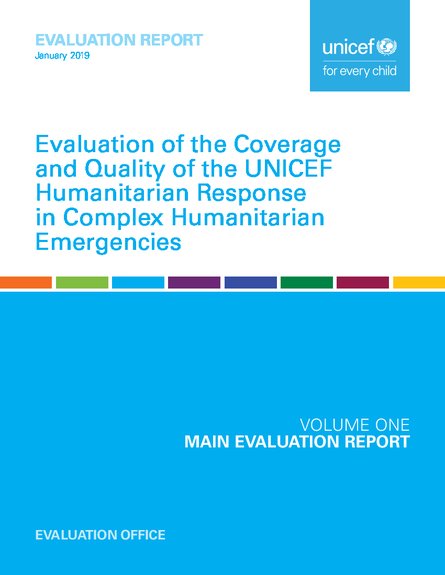
In 2018, the United Nations and partners requested $25.2 billion to assist 97.9 million of the most vulnerable people worldwide and subsequently received $15.1 billion. That year, UNICEF invested considerably in its humanitarian action — approximately $2.8 billion, up from $600 million in 2006 — to meet the growing demand for assistance in multiple, simultaneous, complex and large-scale emergencies.
Given the size of the investment and the scale of the problem, an evaluation was commissioned to assess UNICEF’s performance in achieving coverage and quality in complex humanitarian emergencies. Building on the organisation’s global evaluation plan, this is also the first corporate evaluation focused exclusively on such themes. The idea of conducting an evaluation to illustrate how UNICEF has fared in such contexts has not been explored before.
The premise of the evaluation is to generate practical solutions to guide how UNICEF can improve the coverage and quality of its humanitarian responses. To do so, eleven countries were included in the evaluation:
- 5 field missions (Nigeria, Afghanistan, the Central African Republic, the Philippines and Somalia)
- 4 desk reviews and remote interviews (Pakistan, Ukraine, Burundi, Mali, State of Palestine and the Syrian Arab Republic)
- 3 additional countries for in-depth interviews (South Sudan, Yemen and Iraq)
